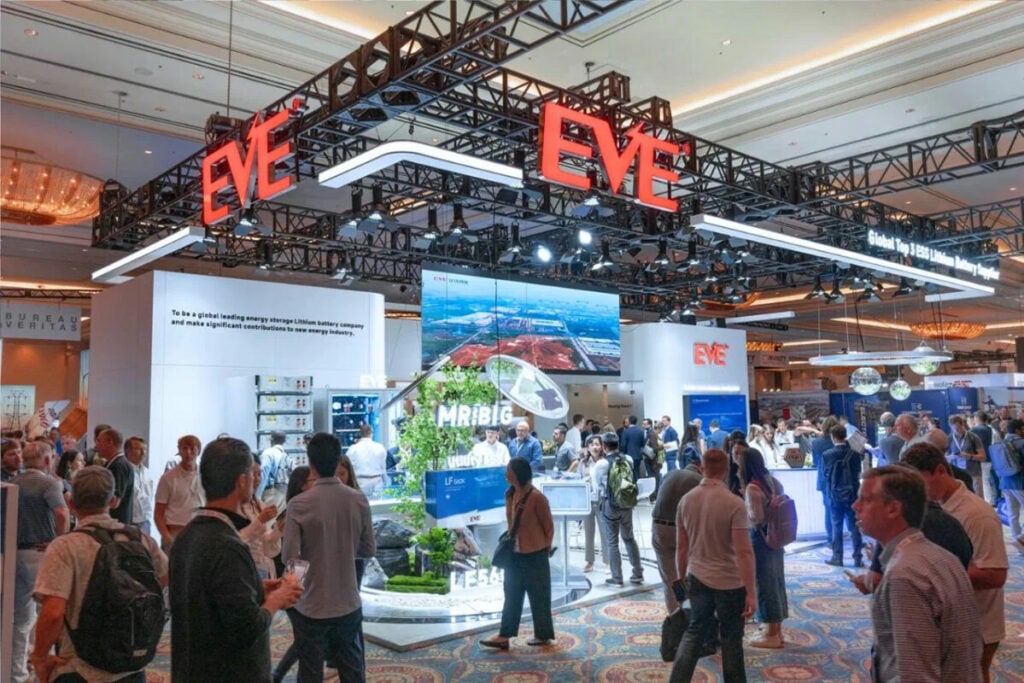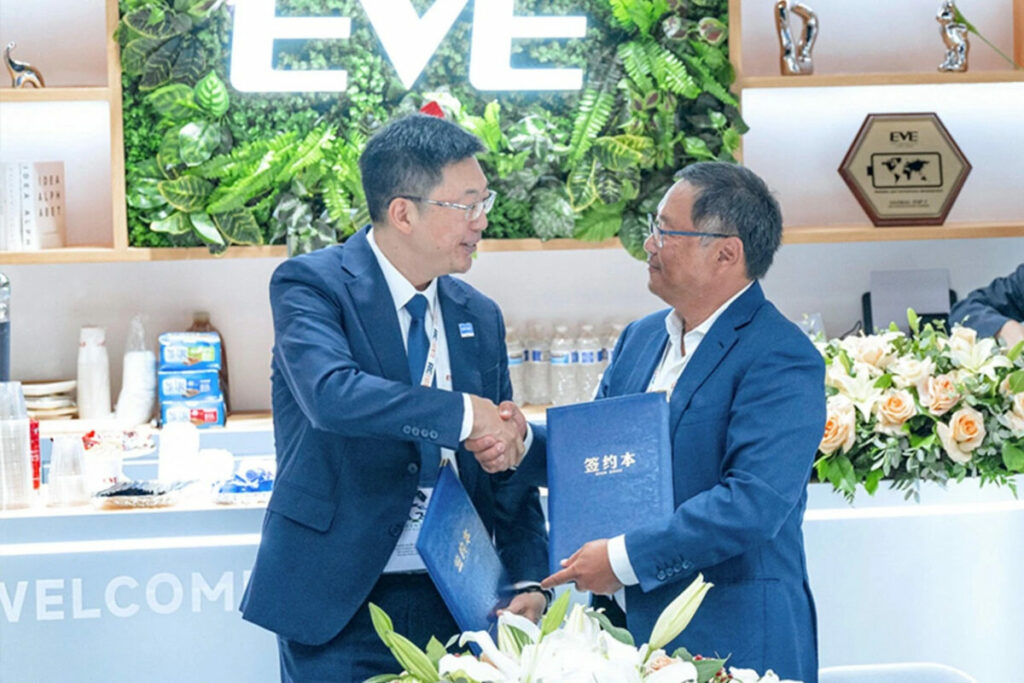
“We think this is the first battery cell which is designed from the end users’ point of view, based on how they want to use it,” EVE Energy’s head of energy storage Steven Chen says.
The Tier 1 battery manufacturer – ranked as China’s third biggest in the stationary energy storage space within the last couple of years – is showcasing its latest products at RE+, the biggest clean energy industry event in the US.
Enjoy 12 months of exclusive analysis
- Regular insight and analysis of the industry’s biggest developments
- In-depth interviews with the industry’s leading figures
- Annual digital subscription to the PV Tech Power journal
- Discounts on Solar Media’s portfolio of events, in-person and virtual
Founded in 2001, EVE makes batteries for many applications including electric vehicles (EVs), telecoms and grid storage.
Steven Chen says experience and knowhow from other sectors has been valuable in developing batteries for energy storage applications, but it is only recently that manufacturers have started producing cells specifically designed for them.
EVE Energy has gone even further this time, and listened to the market. And what the market said, especially in the US, was that greater capacities and duration are needed by battery energy storage system (BESS) operators.
“Previously when battery manufacturers designed products, it was the technology driving that. Whatever they had developed, they would show to the customer who would decide whether they can use it – or not,” Chen says.
“We listened to our customers. They told us they need cells which are dedicated to durations of four hours or even longer, for long-duration energy storage applications. Our customers also said they want to reduce installation costs, so we upgraded the amount of energy stored in each container on site.”
Meet Mr. Giant, meet Mr. Big
While it already has a range of established and well-accepted energy storage cell, module, rack and complete system solutions for battery storage out in the market, Chen says EVE is excited to be introducing us to its two new flagship products: meet Mr. Giant and Mr. Big.
Mr. Giant is a containerised battery energy storage system (BESS) solution that packs up to 5MWh of energy storage capacity into a standard 20ft container.
That’s an immense paradigm shift for the industry. Although energy densities have been increasing and system footprints decreasing over the years, the average containerised system available on the market today is between around 2.5MWh to 3.5MWh per 20ft enclosure.
Mr. Big makes Mr. Giant’s big capacity possible. Mr. Big is a 628ah battery cell, and is what EVE Energy designed as a “tailor-made solution” to requests for BESS solutions capable of those longer duration applications that Chen refers to.
Before you ask, yes, Mr. Big is a lithium iron phosphate (LFP) chemistry cell. Again, the industry is getting better at giving end users what they ask for, and EVE Energy is at the forefront of that, with a long track record working with LFP.
“More and more of our customers notice that LFP is the best choice at this moment and for the next few years, and therefore LFP is dedicated to getting much longer cycle life,” Chen says.
“In China, we’ve already developed this kind of technology for decades: how to use it, how to design the cells and even how to deploy this kind of the technology at the system level.”

Diverging from EV market
At this year’s RE+ show, EVE Energy also announced a multi-year, multi-gigawatt supply deal with leading energy storage system integrator and technology provider Wärtsilä.
Chen says it’s a “big honour” to be working with a company of Wärtsilä’s standing, and Wärtsilä VP of storage and optimisation Andy Tang tells us that, indeed, EVE Energy was receptive to its needs as a customer and, perhaps more importantly, partner.
“Especially through the COVID issues that we had as a supply chain, what we discovered is partnerships are critical. Partnerships are what makes the difference between you getting supply and someone else who is not in at the same level of partnership, not getting supplies. So it means whether or not you can get projects done,” Tang says.
As well as ensuring the right volumes of supplies, however, the ‘partnership’ aspect cuts through to the heart of what Steven Chen speaks about when it comes to listening to customers’ needs.
Key to that was helping EVE Energy understand what Wärtsilä, a pioneer of the industry and an early adopter of LFP technology at scale, has learned about batteries for stationary storage and why the requirements are so different for BESS applications than they might be for electric vehicles.
“In many respects, stationary storage batteries are put through a lot more difficult situations than EV batteries, they’re actually used a lot harder,” Tang says.
Batteries in BESS are cycled much more frequently, and especially when paired with solar PV, much more often cycled from 100% charge down to 0% and back again than EV batteries.
Through a long period of discussions and rigorous testing, EVE and Wärtsilä’s partnership was cemented. From here, the partners can work on co-integration of products and while the system integrator will start off integrating EVE’s cell technology into its GridSolv Quantum containerised BESS solution, the pair are already engaged in “strategic discussions to know what’s coming next,” Andy Tang says.

